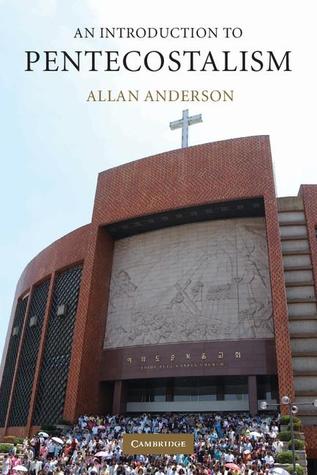Why is Pentecostalism Popular in Latin America and Elsewhere?


I was looking for a book about Pentecostalism and its history and theology. I wanted to get something from a sympathetic perspective. I found it with this volume. Allan Anderson is a former Pentecostal pastor and apparently a global authority on the subject. He seems to know what he’s talking about.
One of the questions I had coming to this book was why Pentecostalism appeals so widely in developing countries. Anderson partly answers this question in chapter 10, “A Theology of the Spirit.” Here’s what he says:
The popularity of Pentecostal and Charismatic forms of Christianity in the developing world can also in part be attributed to a particularly contextual spirituality. Pentecostalism purports to provide for much more than the ‘spiritual’ problems of life. The important role given to divine healing and exorcism, the particular emphasis on the power of the Spirit, but also the comprehensive community projects and significant involvement in political and civic organizations and trade unions, represent a new and vigorous spirituality offering help to human problems. This spirituality is a holistic approach to Christianity that appeals more adequately to popular worldviews than older Christian traditions had done, and in some respects was also more satisfying than ‘traditional’ religions had been. Furthermore, throughout Africa, Asia, the Pacific, and Latin America, Pentecostalism has been more meaningful precisely because it has continued some pre-Christian religious expressions and symbols and invested them with new meanings. (202)
A little further on the same page, Anderson refers to Amos Yong and his attempt to develop a Pentecostal theology of religions. Writes Anderson:
[Yong] points out that Pentecostals in the Third World, especially those who are part of Christian minorities, are in constant interaction with other religions. He says that the experiences of the Spirit common to Pentecostals and Charismatics demonstrate ‘indubitable similarities across the religious traditions of the world.’ This opens up the way for a constructive Pentecostal theology of religions that explores ‘how the Spirit is present and active in other religious traditions.’ (202-203)
This does explain a lot. To put it in my own words, Pentecostalism is popular in part because it accommodates other religious traditions. Pentecostalism is popular partly because it assimilates pre-Christian religious expressions and symbols. At least some Pentecostals believe the Holy Spirit is living and active in non-Christian religions. If we take Anderson’s word, Pentecostalism does something like what the Roman Catholic Church did in Latin America and elsewhere. The Roman Catholics took a pagan goddess and transformed her into Our Lady of Guadulupe. Today this is widely applauded as a form of contextualization. Unfortunately, that word is often a euphemism for syncretism. Interestingly, in the previous chapter, Anderson bemoans a previous generation of Pentecostal missionaries who regarded non-Christian religions as wicked paganism. Therefore, in an earlier period, it appears there was inconsistency in Pentecostalism on this point. Whether Anderson and Yong’s views are widely held in Pentecostalism today, I don’t know.
What I do know is that the alleged holistic appeal of Pentecostalism mentioned in the first quote doesn’t seem to reach very far. In my estimation (based on my reading of this book and conversations with Pentecostals) Reformed theology and worldview is far more holistic than Pentecostalism, but it doesn’t carry the same cachet in Latin America and elsewhere. Why not? I think Anderson answers that question when he write this: “…as I have elsewhere observed, a criticism often justifiably levelled at Pentecostals is that sometimes a theology of success and power is expounded at the expense of a theology of the cross” (198). A theology of the cross never plays well for the crowds, and that’s at the center of the gospel as proclaimed in Reformed churches. If you want the crowds, promise them signs and wonders. If you want to pull in the masses, promise them experiences. Promise them padded bank accounts. Sadly, the trajectory of all this is what Michael Horton called Christless Christianity.


